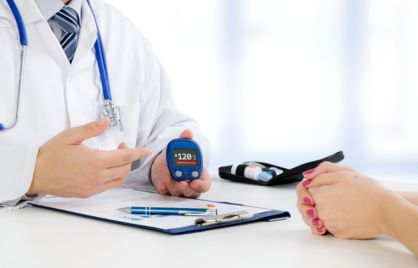What Heart Health Issues Are Linked To Stress?
All of us will experience stress in some form at various times throughout our lives. Work stress is a big one, as is stress in our family. These stresses, depending on the severity of them, can have a negative effect on our health and a question that is often raised is: how does stress effect my heart?
.jpg?sfvrsn=e3cc9cdc_1)
When is stress good and when is it bad?
We often talk about stress as a bad thing, but that’s not necessarily the case. Stress is an important part of our lives, and it helps to spur us on to make progress in our lives. It is completely normal to feel stress if you’re working on a big project within your job or if you’re in the process of renovating your home, for example. Stresses in these specific situations act as the fuel to reach the end of your project and a point of satisfaction.
Long-term stress which has no end in sight can impact our health. If there is constant, unwanted pressure at work or if you’re constantly in a difficult situation in your home life, there can be real knock-on effects for your health.
Urgent Cardiac Care
Mater Private Dublin provides Urgent Cardiac Care services 24 hours a day, 7 days a week and is the only private hospital in Ireland to do so.
Learn more.jpg?sfvrsn=fd41945d_2)
What does stress do to your body?
Anyone who has experienced significant stress knows that it has a knock-on effect on your normal rhythm. Common complaints among people who are stressed are:
- A lack of sleep.
- Low energy.
- No sense of control over life.
- Poor mental and physical health.
These complaints are caused by the function of your body when it is under stress. When a person is in a state of stress, the body enters what we commonly know as the ‘fight or flight’ response. This causes a release of adrenaline into the body, which raises blood pressure and heart rate. Again, in situations where this response lasts for a short period of time, those changes in your body are perfectly normal. Problems arise when this state lasts for days, weeks or months and a person’s heart rate or blood pressure is constantly elevated.
So, does this mean that stress is bad for my heart?
It’s hard to answer this question conclusively. There is research which suggests that stress can have a direct negative effect on a person’s heart health.
For example, a study published in 2018 in the European Journal of Preventive Cardiology, noted that there was an increased risk of a condition called atrial fibrillation among people who are stressed at work. Atrial Fibrillation (also called AFib or AF) is an irregular, fast heart rhythm caused by chaotic electrical activity in the atria, which are the upper chambers of the heart. It can lead to blood clots, stroke, heart failure and other heart-related complications.
More research is needed to make more solid connections on the direct effects of stress on a person’s heart. What we do know, though, is that stress can indirectly cause issues for a person’s heart health.
People who are experiencing long-term stress are more likely to make lifestyle choices which are known to have a negative impact on their heart health. Those lifestyle choices can include:
- Smoking.
- Excessive food consumption.
- Excessive alcohol consumption.
- Lack of exercise.
The links between the above and an increased likelihood of heart disease and other heart health issues are concrete and undisputed, so we should be mindful of them when we are in a state of stress.
What can I do to manage my stress?
If stress is taking a very serious toll on your life, it is important to seek individualised professional help in the first instance.
More generally, though, there are ways through which a person can manage their stress. These could include:
- Understand your body and be mindful of the effects that stress has on it.
- Identifying, understanding and mitigating your stress triggers.
- Talk to friends, family or a professional about stress.
- Create plans to navigate stressful situations.
- Keep physically active.
- Socialise to avoid isolation.
What should I do if I’m already experiencing issues with my heart health?
Mater Private Network’s Heart & Vascular Centres in our Dublin and Cork hospitals are considered among the best in the country.
We offer a complete range of heart and vein-related services, from testing and minimally invasive procedures to complex open heart surgery, all provided by some of the most respected specialist cardiologists and vascular consultants in the world, using the most advanced equipment and technology available.
The latest addition to our service offering at Mater Private’s Heart & Vascular Centre in Dublin is the HeartCheck service which is designed to give you valuable insights about your cardiovascular health. HeartCheck consists of a cardiovascular risk assessment, a genetic or familial risk assessment and a cardiac second opinion if you have recently been diagnosed with a heart condition.
We also provides Urgent Cardiac Care services 24 hours a day, 7 days a week; this service is available to walk-in patients, with or without GP referrals.
More information about our Heart and Vascular Centres and the services we offer can be found in our Heart & Veins section.













